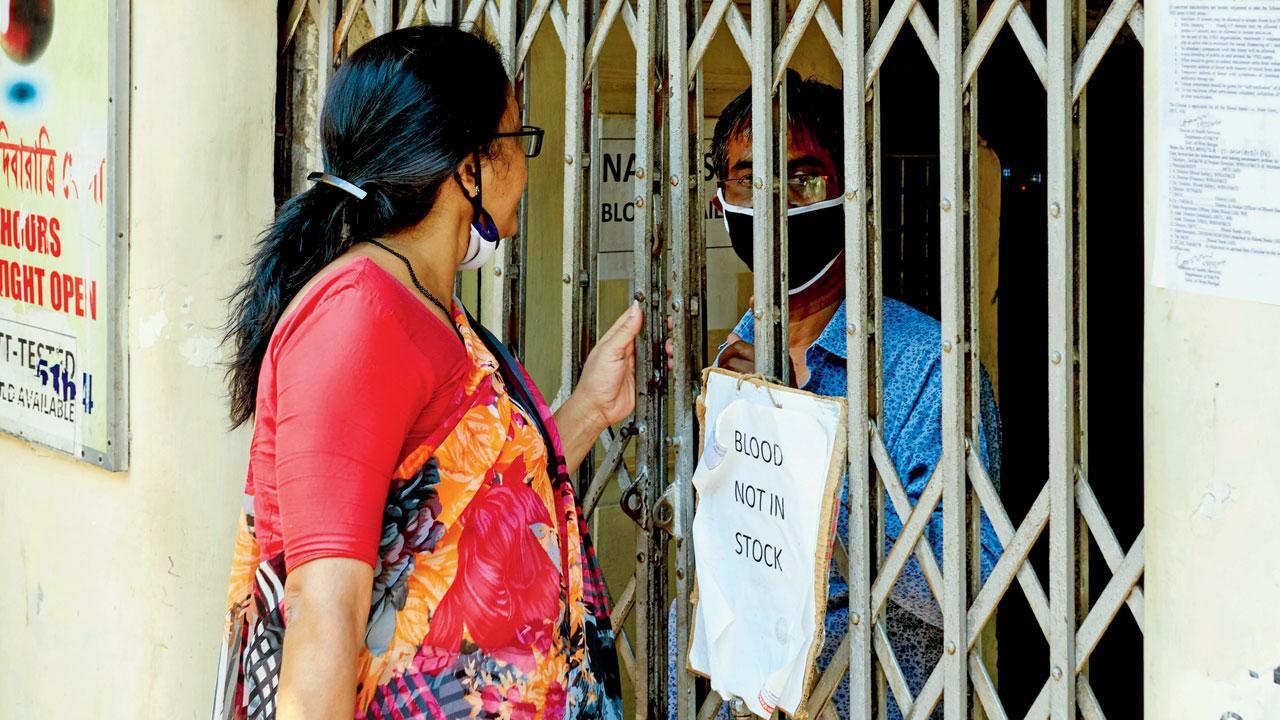People’s Health Organisation calls on government to address ‘camouflaged blood trade’, denounces high deposits and processing charges at hospitals and blood banks

The Centre has capped processing charges of whole blood at R1,550 for private blood banks. Representation Pic
In the wake of a recent directive from the Drugs Controller General of India (DCGI) to the state’s Drug Controller-cum-Licencing Authority, urging it to ensure compliance with revised guidelines for the recovery of blood processing charges, Mumbai-based People’s Health Organisation (PHO, India) has brought attention to the concealed nature of blood trade within private hospitals and blood banks.
ADVERTISEMENT
Dr Ishwar Gilada, secretary general, PHO, and president emeritus, AIDS Society of India, said most private blood banks, despite acquiring the majority of their blood supply from voluntary donors, charge receivers or their families a deposit ranging from R1,500 to R5,000 per unit of blood. “They expect the patient to replace the blood within the stipulated time limit. In case of failure to replace blood, the deposit is forfeited. This amounts to selling blood,” he noted.
What is blood processing?
These deposit charges are in addition to the blood processing fee of Rs 1,700 to Rs 3,500 per unit charged by the blood banks. Blood processing refers to all the steps that are taken after a person donates blood.
The donated blood (whole blood) goes through a process called centrifugation, which involves spinning the blood in a machine to separate it into different parts: red cells, platelets, and plasma. Each of these components can be used for different medical purposes. As per the Centre’s 2022 guidelines, private blood banks cannot charge more than Rs 1,550 for processing whole blood.
Recently, the DCGI in the context of private blood banks’ high processing charges, had said, “blood is not for sale”. In government-run blood centres, the cost of processing blood and other components has been capped at Rs 1,100.
‘Give screening results’
Additionally, Dr Gilada has advocated for rules that require private blood banks to disclose to donors their screening results for specific diseases such as HIV, Hepatitis B Virus (HBV), Hepatitis C Virus (HCV), syphilis, and malaria.
He said private blood banks hesitate in doing so due to lack of counsellors or lack of repeat testing facilities. “A person has a right to know their status,” Dr Gilada said, adding that this can help in quick access to treatment before a donor’s condition becomes worse. “It can also play a preventive role as blood banks can ask Hepatitis B negative people to visit their nearest centre for Hepatitis B vaccination,” Dr Gilada said.
In its recommendation, the PHO has called on the government to look into the ‘camouflaged nature’ of blood trade and has asked the public to opt for autologous blood transfusion. In autologous blood transfusion, an individual donates their own blood for a planned medical procedure, such as surgery, and later receives that blood during the procedure. “People need to tactfully question a doctor’s prescription for blood, and certainly not to buy blood from blood sellers in case of emergency for their own safety,” Dr Gilada said.
Rs 1,700
Min processing charge by blood banks per unit
Rs 3,500
Max processing charge by blood banks per unit
 Subscribe today by clicking the link and stay updated with the latest news!" Click here!
Subscribe today by clicking the link and stay updated with the latest news!" Click here!







